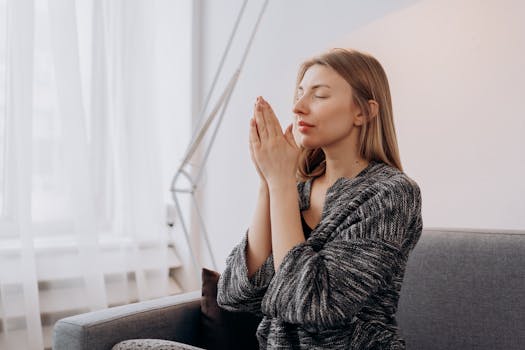
**
Anurag Kashyap's Powerful Testimony: How Yoga Conquered Post-COVID Depression – "I Wouldn't Have Survived"
Celebrated Bollywood filmmaker Anurag Kashyap recently revealed a deeply personal and inspiring journey of recovery from post-COVID depression, attributing his survival to the transformative power of yoga. In candid interviews, Kashyap, known for his intense and often dark cinematic narratives, shared the struggles he faced following a COVID-19 infection, highlighting the often-overlooked mental health challenges that can linger long after the physical symptoms subside. His story is resonating with millions, prompting critical conversations around post-COVID mental health, the benefits of yoga for depression, and the importance of seeking help.
The Lingering Shadows of COVID: More Than Just a Virus
Kashyap's experience underscores the debilitating effects of Long COVID, a condition that encompasses a wide array of lingering symptoms after an initial infection. While many associate COVID-19 with respiratory issues, the impact extends far beyond, frequently manifesting as neurological symptoms, including depression, anxiety, brain fog, and fatigue. This "long hauler" syndrome, as it's often called, can significantly impact an individual's mental and physical well-being, leaving many struggling to cope with the aftermath. Kashyap's openness about his struggles helps destigmatize the mental health challenges faced by many post-COVID patients and emphasizes the need for increased awareness and support.
The Darkest Hours: Anurag Kashyap's Battle with Post-COVID Depression
Kashyap detailed his descent into depression after contracting COVID-19. He described experiencing overwhelming feelings of hopelessness, lethargy, and a profound sense of disconnection. These symptoms, common among individuals struggling with post-COVID depression, impacted his daily life, affecting his ability to work and interact with loved ones. He explicitly stated that without intervention, he believed he wouldn't have survived the ordeal. This candid admission powerfully illustrates the severity of post-COVID mental health issues and the urgent need for effective treatment strategies.
The Turning Point: Finding Solace and Healing in Yoga
Amidst the darkness, Kashyap found a lifeline in the ancient practice of yoga. He began incorporating yoga into his daily routine, initially as a form of physical therapy to combat the lingering fatigue. However, what started as a physical exercise quickly transformed into a profound mental and emotional healing journey.
Yoga for Depression: A Holistic Approach to Healing
The benefits of yoga for mental health, particularly depression and anxiety, have been increasingly recognized by the scientific community. Studies have shown that yoga can:
- Reduce stress hormones: Yoga's deep breathing exercises and mindful movements help regulate the body's stress response, reducing the production of cortisol and other stress hormones.
- Improve mood: Regular yoga practice has been linked to increased levels of serotonin and dopamine, neurotransmitters crucial for mood regulation.
- Enhance self-awareness: The mindful aspect of yoga encourages self-reflection and emotional regulation, promoting a greater understanding of one's emotional state.
- Improve sleep: Many individuals suffering from depression experience sleep disturbances. Yoga's relaxing effects can contribute to improved sleep quality.
- Boost self-esteem: The sense of accomplishment and physical strengthening associated with yoga can contribute to improved self-esteem and body image.
Kashyap’s experience provides powerful anecdotal evidence supporting these findings. He found that the combination of physical postures (asanas), breathing exercises (pranayama), and meditation helped him regain a sense of control over his mental and physical state. The practice became a source of strength and resilience, allowing him to navigate the challenges of post-COVID recovery.
Beyond Yoga: The Importance of Comprehensive Mental Health Support
While Kashyap emphasizes the crucial role yoga played in his recovery, it’s essential to understand that it's often most effective as part of a broader approach to mental health treatment. His journey highlights the importance of seeking professional help alongside alternative therapies like yoga.
Seeking Professional Help for Post-COVID Depression:
- Therapy: Cognitive Behavioral Therapy (CBT) and other forms of therapy can provide valuable tools for managing symptoms of depression.
- Medication: In some cases, medication may be necessary to address the chemical imbalances contributing to depression.
- Support groups: Connecting with others facing similar challenges can offer invaluable support and understanding.
Kashyap's story isn't just a personal account of recovery; it's a powerful call to action. It encourages open conversations about mental health, especially in the context of Long COVID. His experience underlines the importance of seeking professional help, combining medical treatment with alternative therapies like yoga, and fostering a supportive environment to facilitate healing. His testament to the transformative power of yoga offers a beacon of hope for countless others grappling with the lingering effects of COVID-19 and the pervasive challenges of depression. The journey to recovery is often long and complex, but as Kashyap's story demonstrates, with perseverance, support, and the right tools, healing is possible. His courageous sharing of his experience is a gift, inspiring many to seek help and discover their own path to recovery.




















